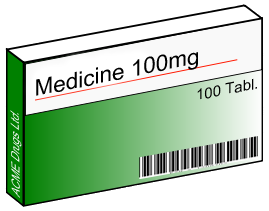China Probes Drugs, Praises Milk Makers

China’s state planner has always been a potent force in making big investment decisions that affect the macro economy, and now it’s quickly emerging as a potent regulator of product pricing by the private sector. That’s my major conclusion following news for the second time this week that the National Development and Reform Commission (NDRC) is conducting yet another pricing investigation against foreign firms it suspects of fixing prices artificially high. Earlier this week the target of a new probe was foreign milk powder makers, and this time it’s foreign drug makers including Merck (NYSE: MRK), GlaxoSmithKline (London: GSK), Novartis (Switzerlan; NOVN) and around 2 dozen other companies.
I’ll admit that I have more mixed feelings about this latest investigation compared with the probe against the milk powder makers that I wrote about earlier this week. (previous post) On the one hand, I think the foreign milk powder makers such as Danone (Paris: BN) and Nestle (Switzerland: NESN) should be able to charge a premium for their product because there are many rival products in the market. But when it comes to drug makers, there is often much less competition for individual products, and thus I do feel that some sort of government-led price regulation is often necessary to keep prices affordable for average consumers.
All that said, let’s take a look at the latest headlines that say the NDRC is investigating prices charged by about 30 drug companies, according to a Chinese media report. (English article) The investigation, which was confirmed by the NDRC itself, appears to have just begun this month and will run through October.
Based on the very limited amount of information in the report, this investigation looks more like Beijing’s attempt to rationalize China’s fast-growing drug market rather than a move to punish individual companies for wrongdoing. China’s national healthcare system is already undergoing sweeping changes as Beijing tries to provide a basic level of medical care to replace the now-defunct older system where people once got all such services through their state-owned work units.
My guess is that this NDRC investigation is probably just the first step before China rolls out more strict pricing guidelines for the growing number of drugs being sold in the country. Many major western countries already have such pricing systems, which help to keep drugs affordable for the average consumer.
This latest probe comes just days after media reported that the NDRC was investigating 5 foreign milk powder makers for possible price fixing. In the latest twist to that story, many of the powder makers have suddenly lowered their prices after the NDRC accused them of raising prices 30 percent over the last 5 years. As a result, the NDRC has started praising the price cuts, which perhaps could lead to a dropping of the investigation. (English article)
While I somewhat agree with the logic behind the drug probe, I really have to say I disagree with the NDRC’s bullying tactics in the milk powder case. After all, the only reason Nestle, Danone and the other foreign powder makers could charge such a premium was due to lack of consumer trust towards their Chinese rivals due to a non-stop series of food safety scandals.
That’s what’s called free and fair competition. If a company makes a superior product that people trust more, then it should be able to charge a premium for that product. The NDRC’s bullying tactics in the milk powder case look like the equivalent of telling Starbucks (Nasdaq: SBUX) it can’t charge its ridiculously high prices for its coffee. Starbucks charges those high prices because consumers are willing to pay, and the same should be true for the foreign milk powder makers.
Bottom line: China’s latest probe into drug prices looks like the prelude to the introduction of government guidelines to keep drugs affordable.
Related posts:
